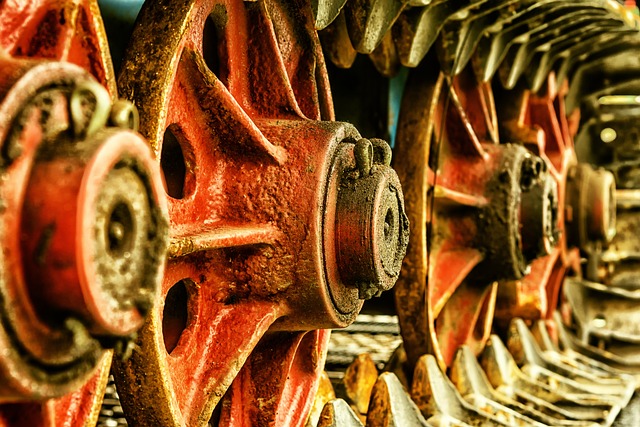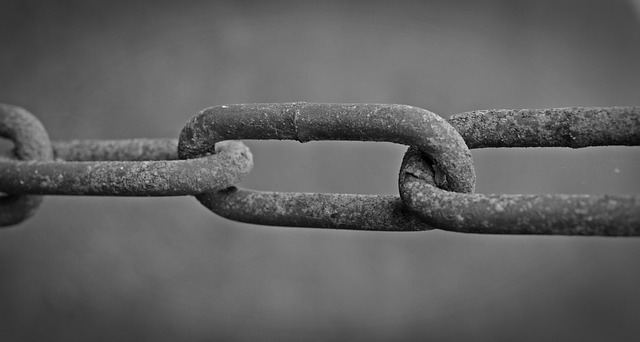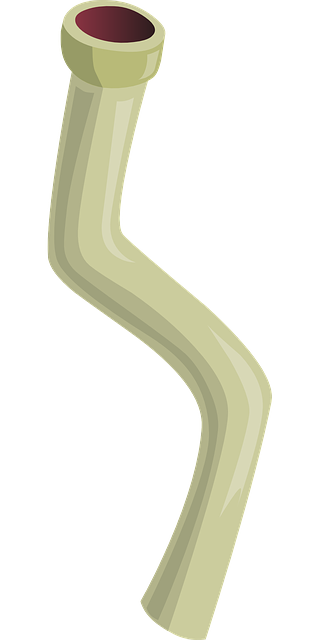Pipe corrosion, a significant plumbing concern, results from metal pipes' interaction with water and environmental elements, causing gradual deterioration. The main contributors include water quality issues like hard water and contaminants, extreme temperatures, high moisture, and acidic humidity. Different pipe materials exhibit varying resistance; copper and PVC are more resistant than steel or iron. Preventative measures involve selecting corrosion-resistant materials, proper installation, regular maintenance (inspecting for damage, ventilation), insulation in extreme conditions, and routine cleaning to mitigate hard water buildup. Addressing these common causes is crucial to avoid costly repairs and disruptions associated with pipe corrosion.
Pipe corrosion is a common yet insidious issue that can plague plumbing systems, leading to costly repairs and disruptions. Understanding what causes this deterioration is essential for homeowners and professionals alike. This article delves into the heart of the matter, exploring the basic facts about pipe corrosion and dissecting the common causes behind it. By the end, you’ll be equipped with knowledge on how to prevent and mitigate its impact.
- Understanding Pipe Corrosion: The Basic Facts
- Common Causes of Pipe Corrosion: A Detailed Look
- Preventing and Mitigating the Impact of Pipe Corrosion
Understanding Pipe Corrosion: The Basic Facts

Pipe corrosion is a common issue that plagues many plumbing systems, leading to costly repairs and disruptions in our daily lives. Understanding this process is the first step towards prevention and maintenance. The basic facts reveal that pipe corrosion occurs when metal pipes react with elements present in water or the surrounding environment, resulting in the deterioration of the pipe’s material over time. This reaction can be accelerated by various factors, making it essential to identify the common causes.
The most prevalent causes of pipe corrosion include exposure to corrosive substances like salt, acid, or alkalis in the water; high moisture content; and unfavorable environmental conditions such as extreme temperatures or acidic humidity. Different metals have varying levels of resistance to corrosion, with some being more susceptible than others. For instance, iron pipes are highly prone to corrosion when in contact with acidic water, leading to the formation of rust. Identifying these causes is crucial for implementing effective prevention strategies, ensuring the longevity of plumbing systems.
Common Causes of Pipe Corrosion: A Detailed Look

Pipe corrosion is a common plumbing issue that can lead to significant damage if left unchecked. Understanding the common causes of pipe corrosion is the first step in preventing and addressing this problem. One of the primary factors is water quality; hard water, high mineral content, and the presence of contaminants like iron, manganese, and sulfur bacteria can accelerate corrosion. These substances can accumulate over time, forming a protective layer on the pipes that prevents oxygen from reaching the metal, leading to oxidation and eventual deterioration.
Another major contributor is pipe material and design. Different metals have varying resistance to corrosion. For instance, copper and PVC pipes are less susceptible compared to steel or iron pipes. Improper installation techniques, such as poor drainage or inadequate ventilation, can also create environments conducive to corrosion. Additionally, exposure to extreme temperatures, moisture, or chemicals used for water treatment can exacerbate the issue, making it essential to use suitable materials and ensure proper maintenance to mitigate these Common Causes of Pipe Corrosion.
Preventing and Mitigating the Impact of Pipe Corrosion

Pipe corrosion is a significant concern for homeowners and plumbing professionals alike, as it can lead to costly repairs and disruptions in water supply. Understanding the common causes of pipe corrosion is the first step in preventing and mitigating its impact. One of the primary factors is water quality; hard water containing high levels of minerals can accelerate corrosion by creating an environment conducive to metal deterioration. Additionally, certain chemicals present in treated water or pollutants entering through pipes can severely damage plumbing materials over time.
To combat pipe corrosion effectively, regular maintenance plays a pivotal role. This includes checking for any signs of damage or leaks and ensuring proper ventilation in pipes to prevent moisture buildup. Using corrosion-resistant materials during new installations is another proactive measure. Additionally, insulating pipes, especially in areas exposed to extreme temperatures, can shield them from the elements. Regular cleaning and flushing of plumbing systems help remove sediment buildup, minimizing the risk of corrosion by maintaining optimal water flow and quality.
Pipe corrosion is a significant concern for any plumbing system, but understanding its common causes empowers homeowners and professionals alike to take proactive measures. By identifying factors like water quality, material types, and environmental exposure, we can effectively prevent and mitigate corrosion. Regular maintenance, including inspections and treatments, plays a crucial role in ensuring the longevity of our plumbing infrastructure. Knowing the enemy—the Common Causes of Pipe Corrosion—is half the battle won.
